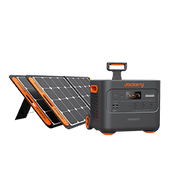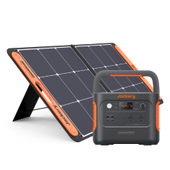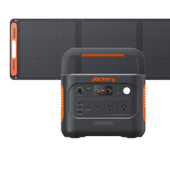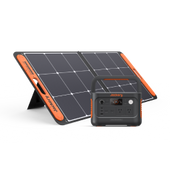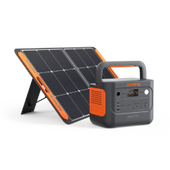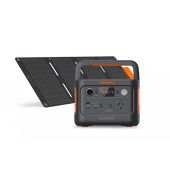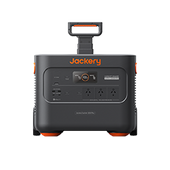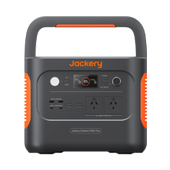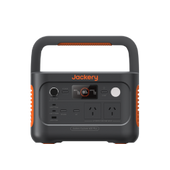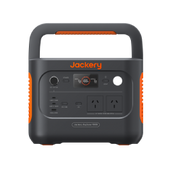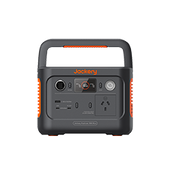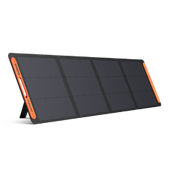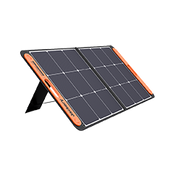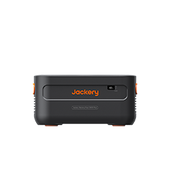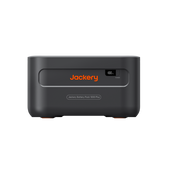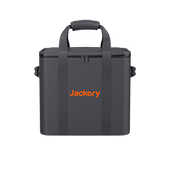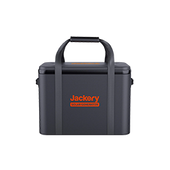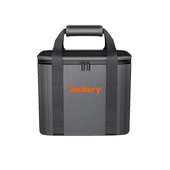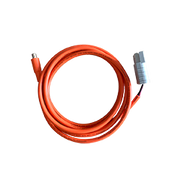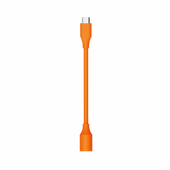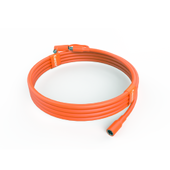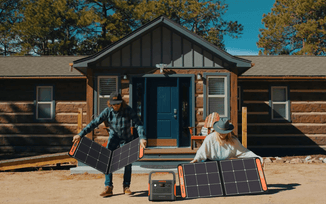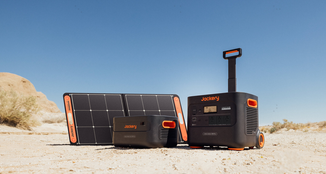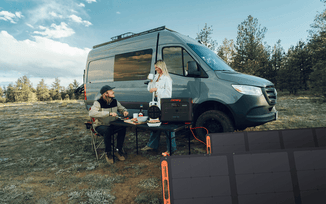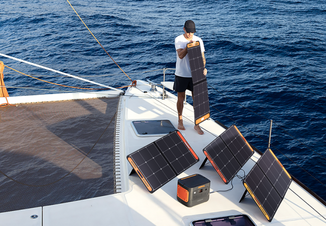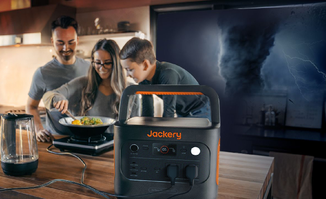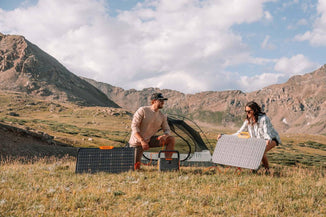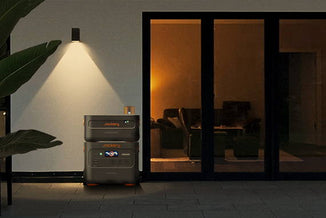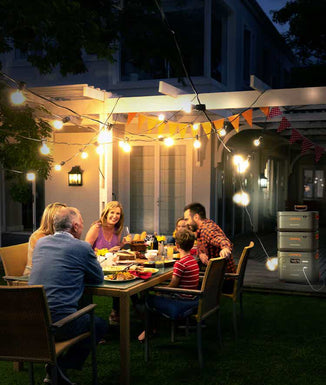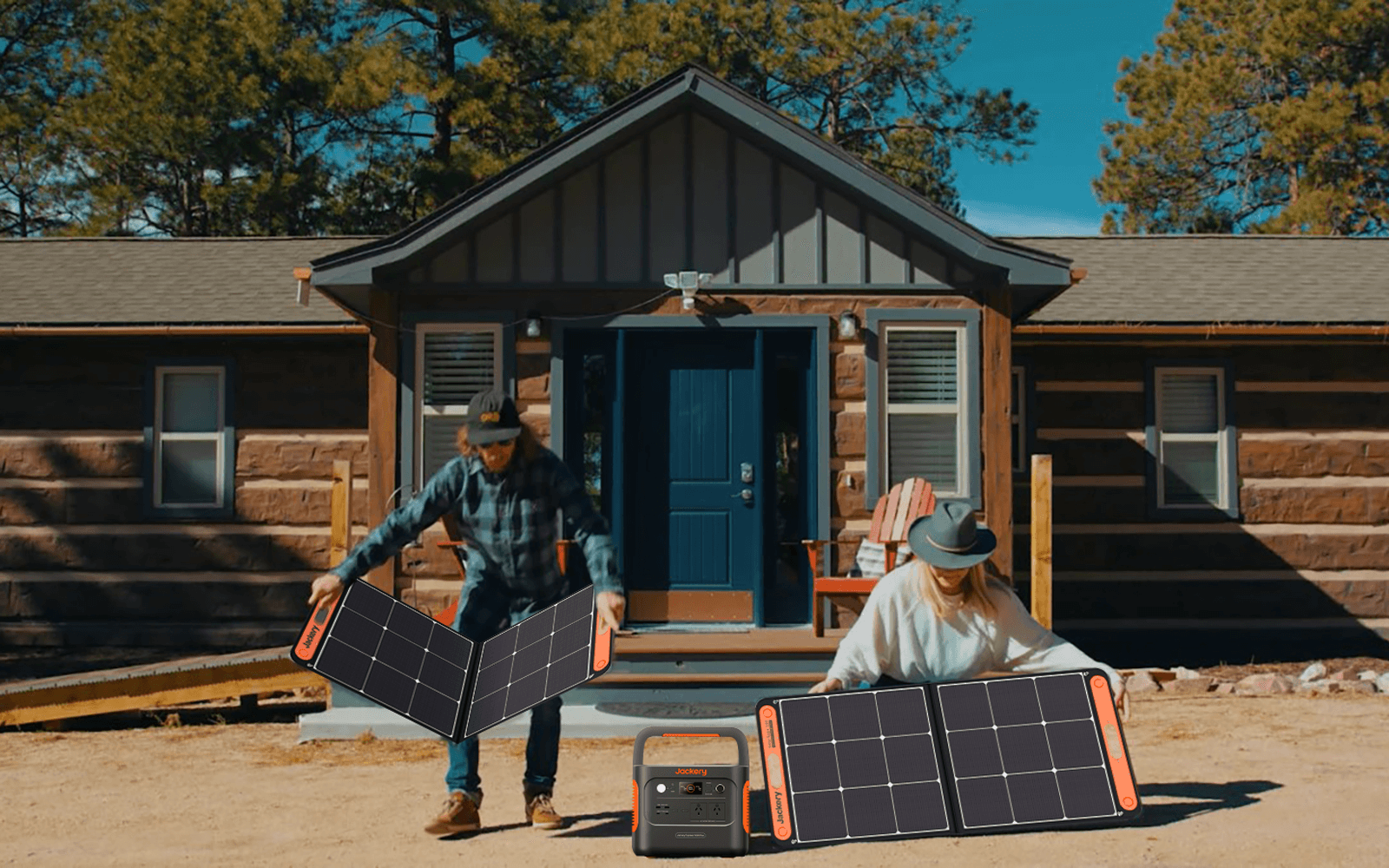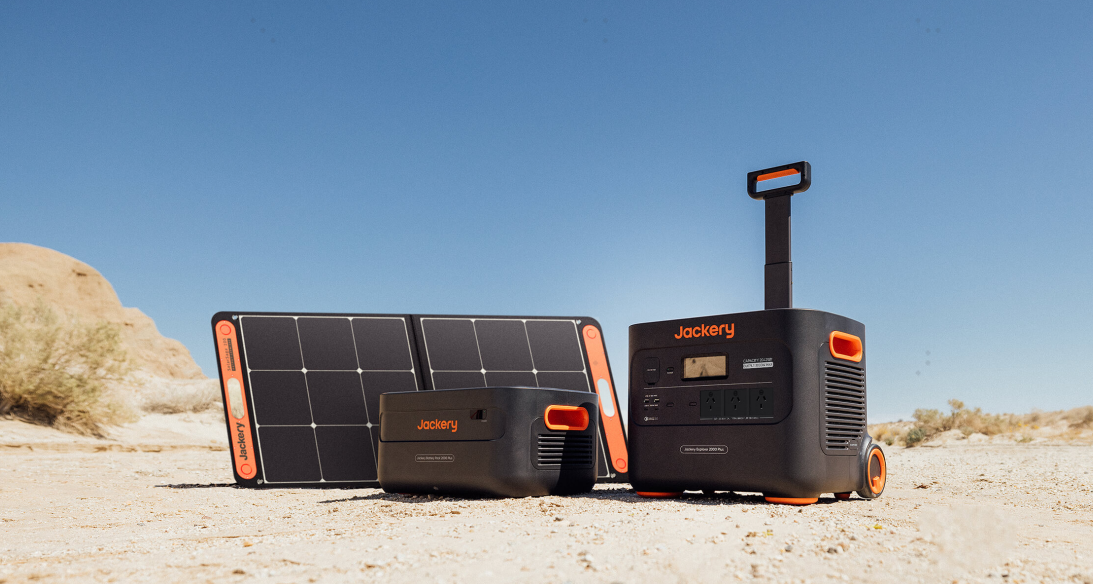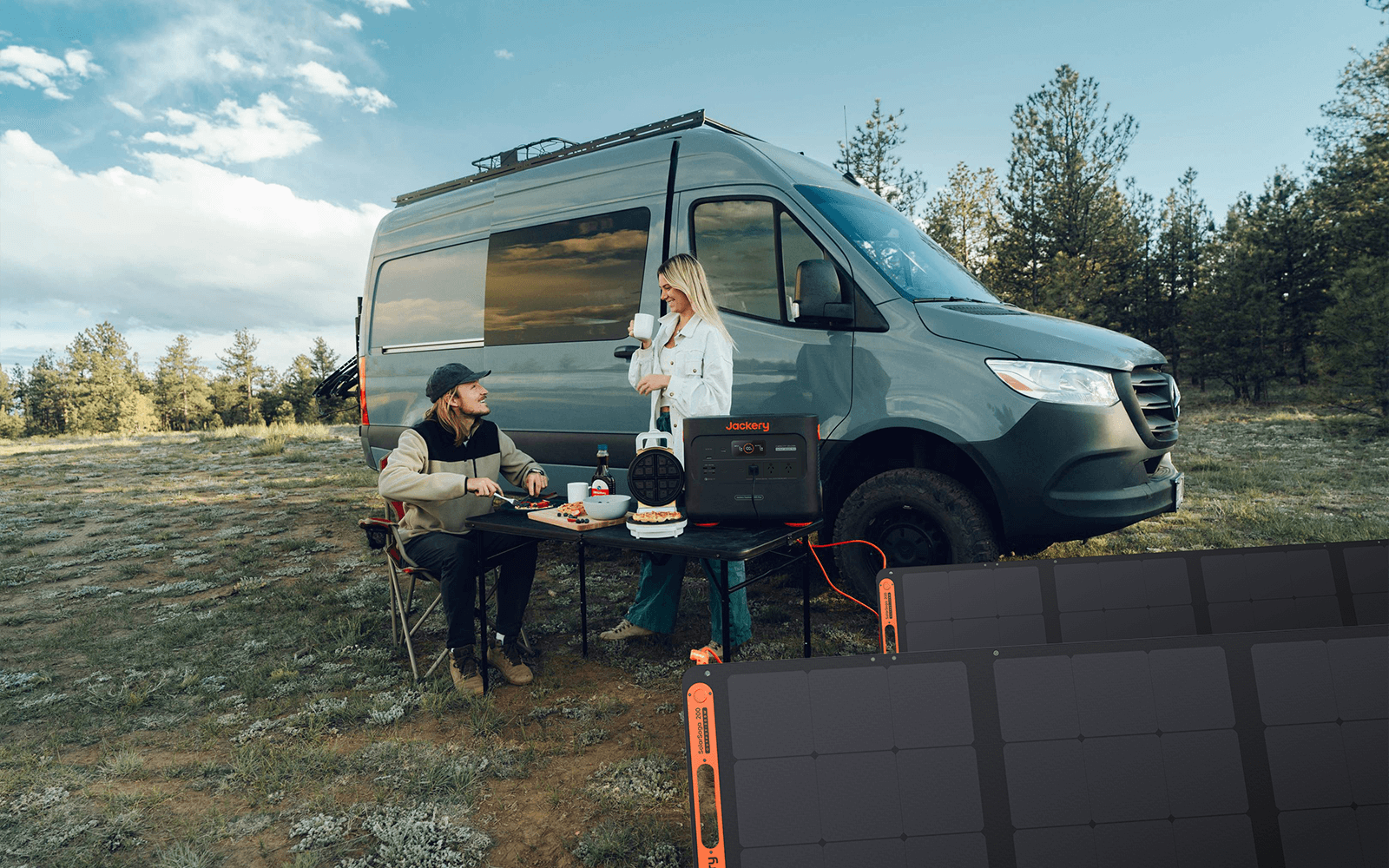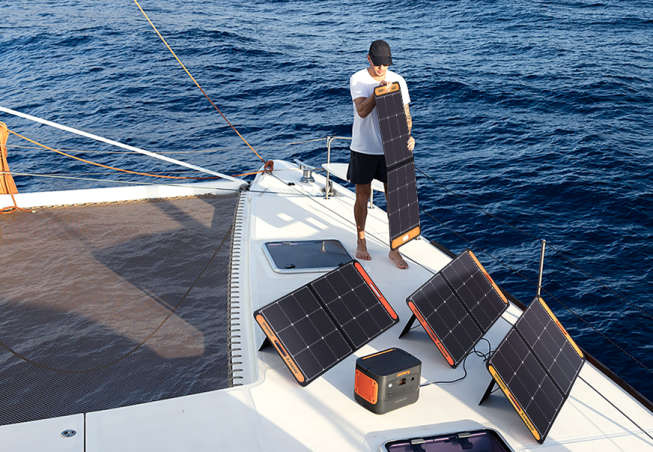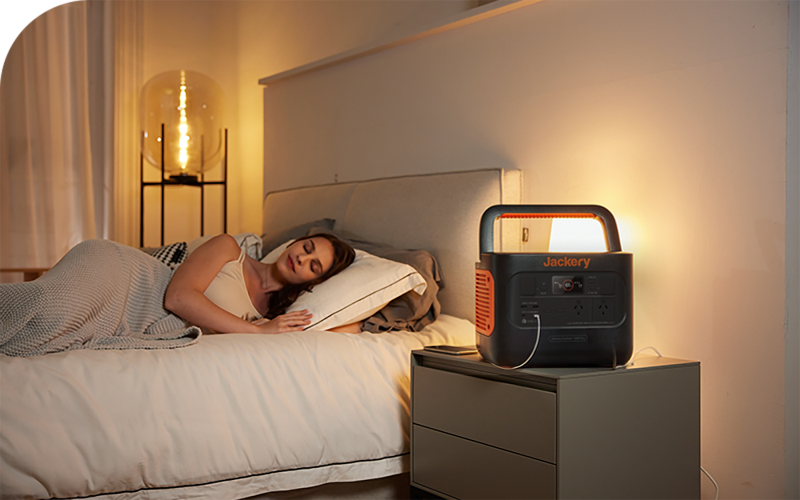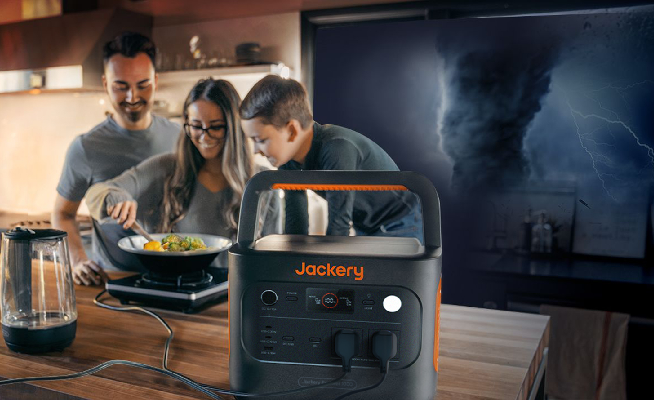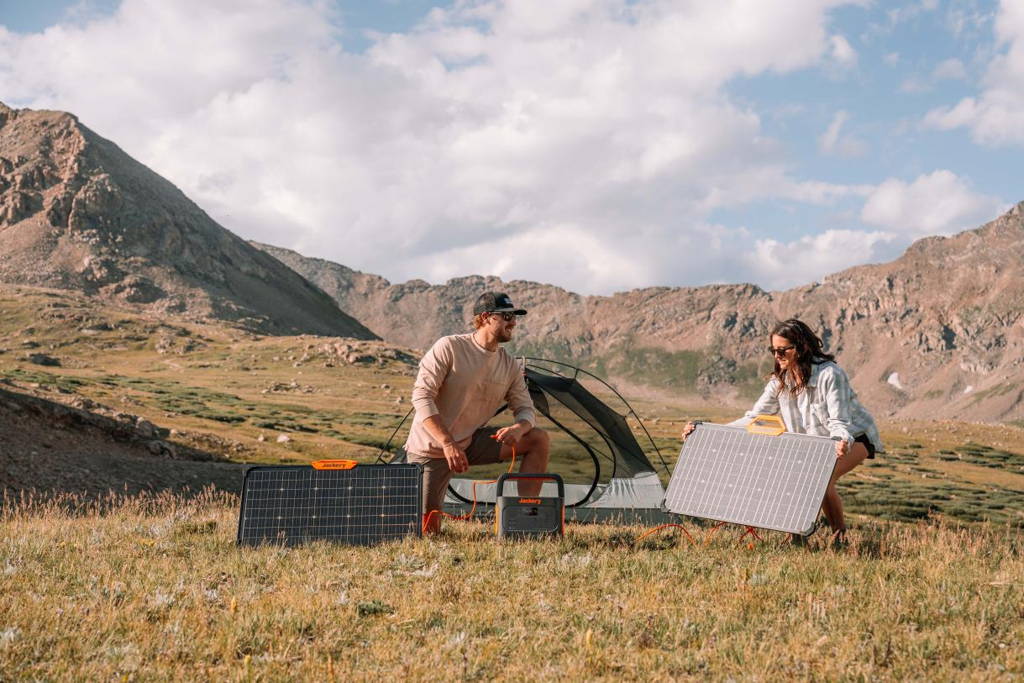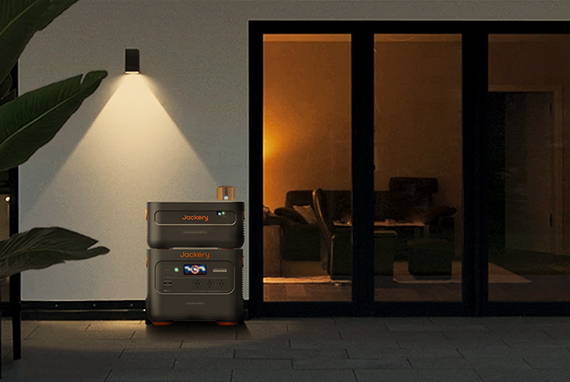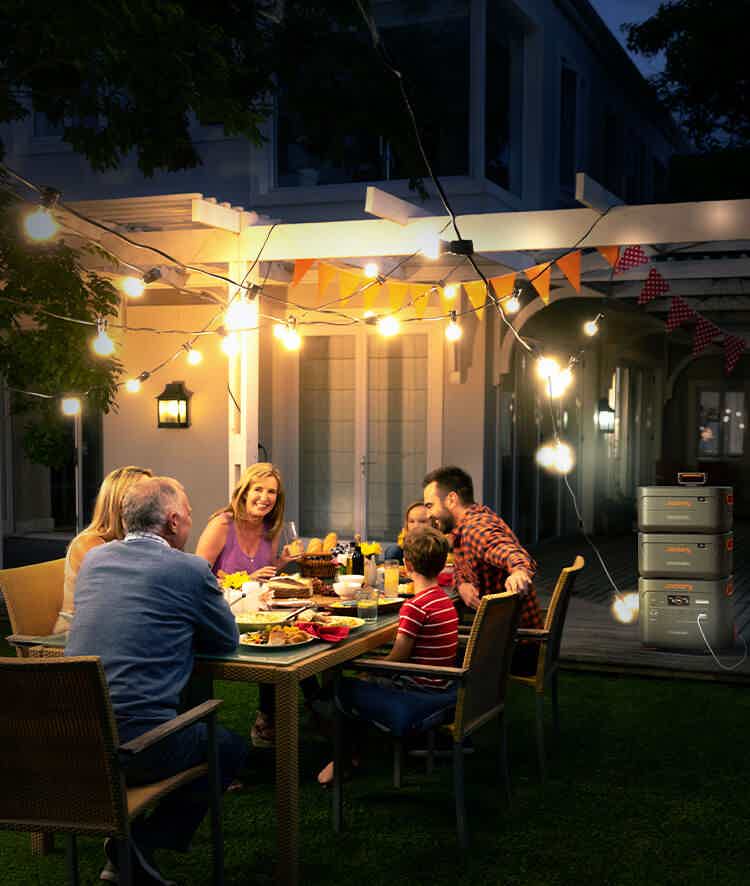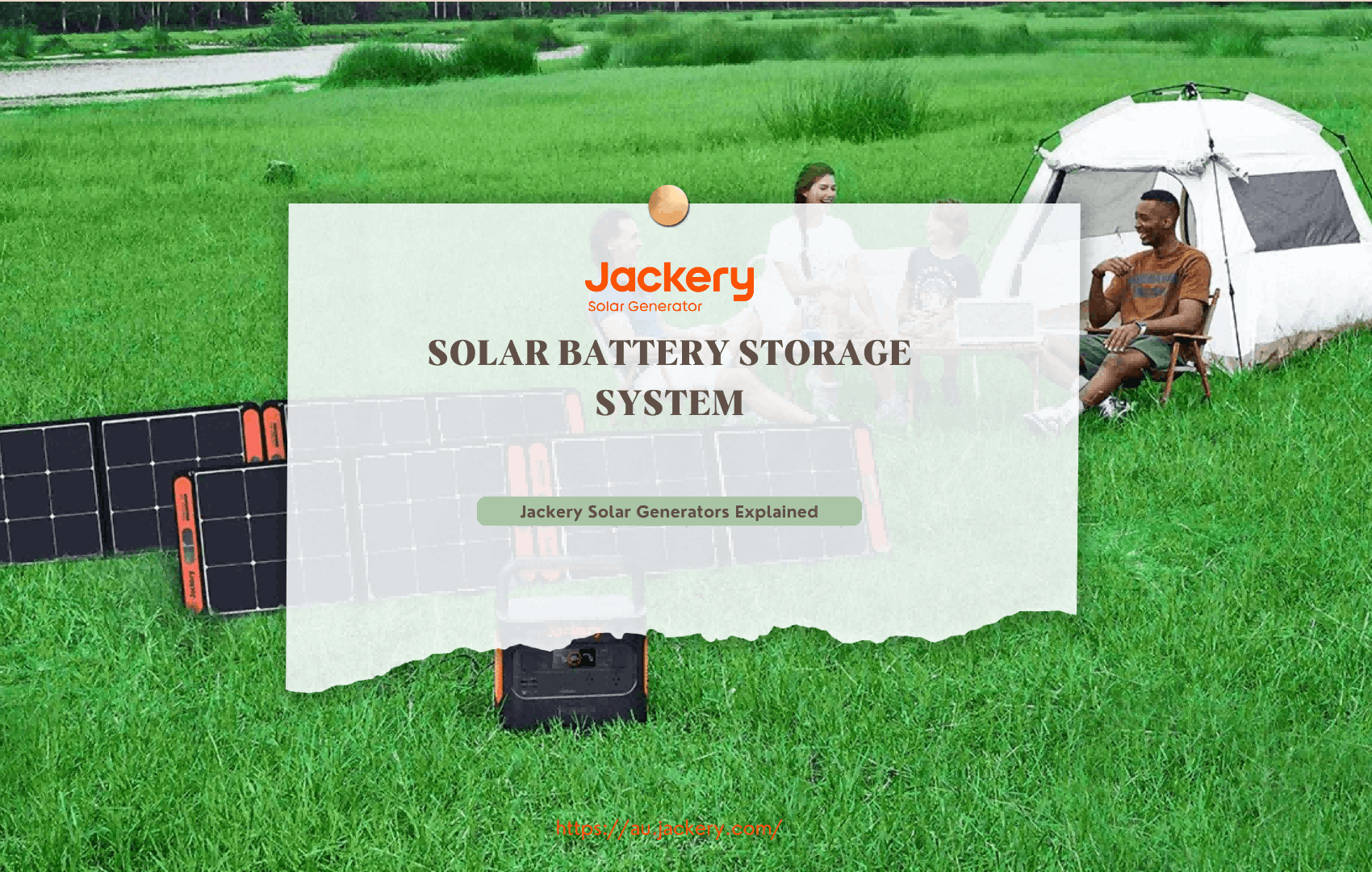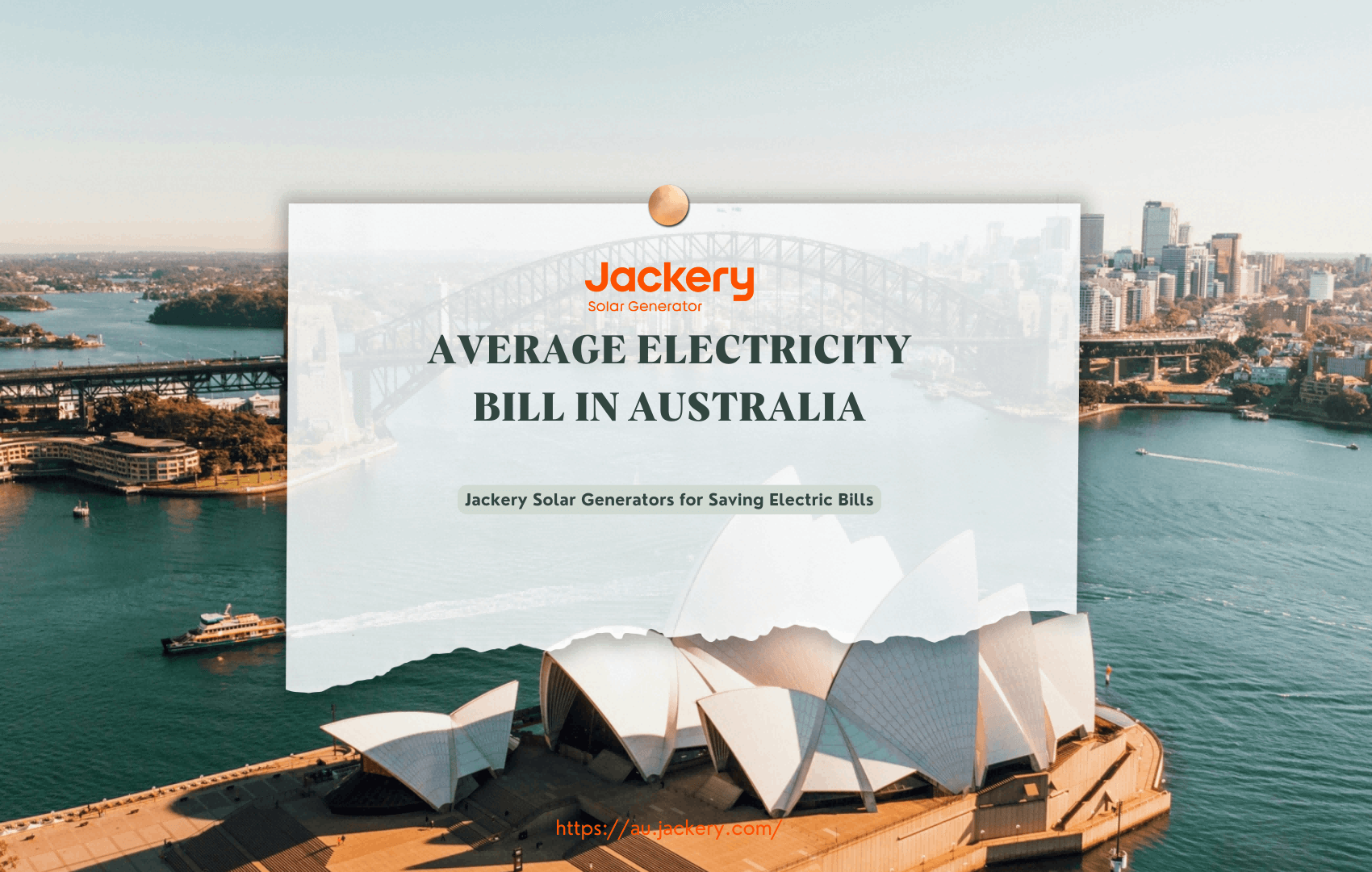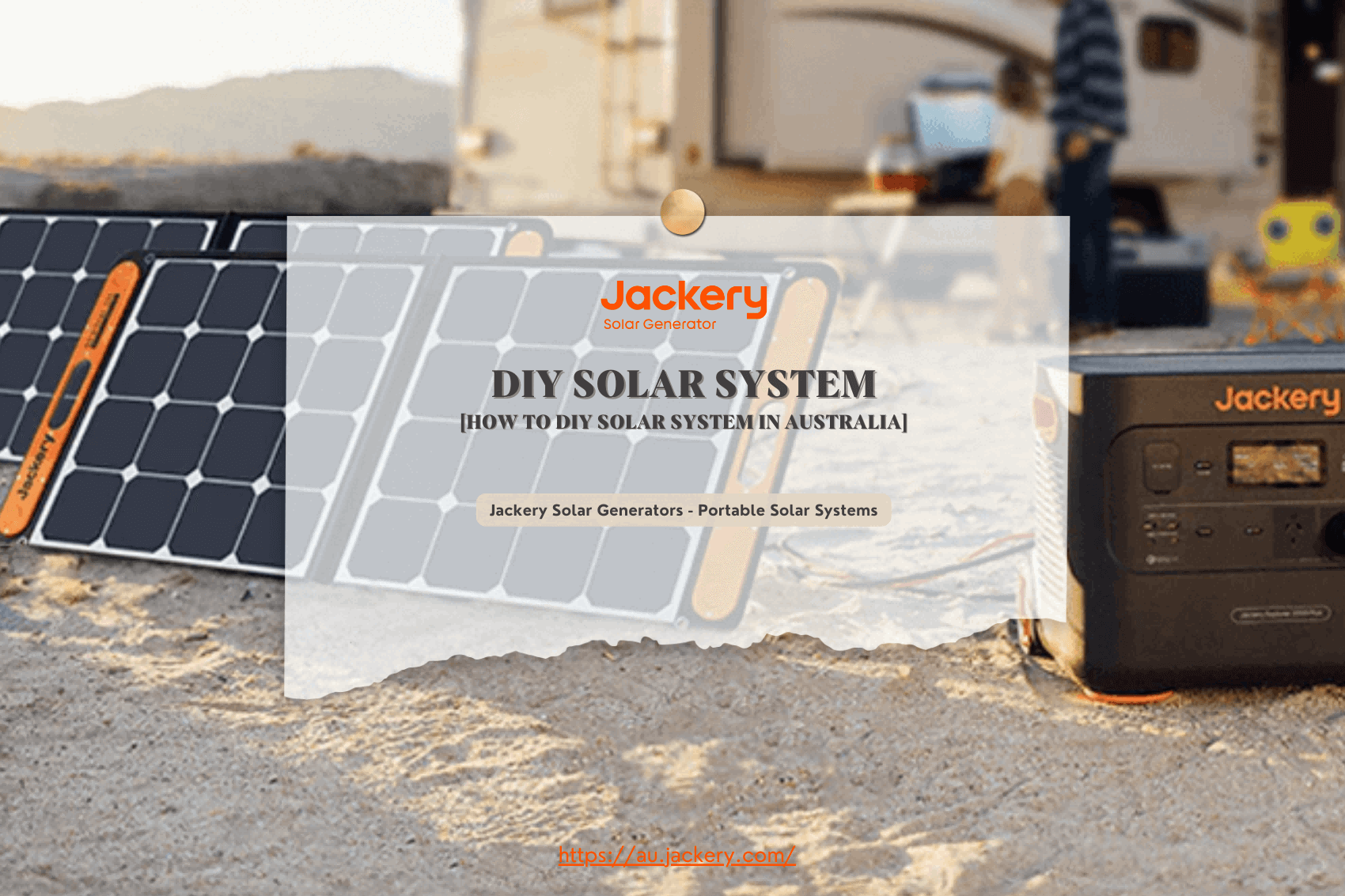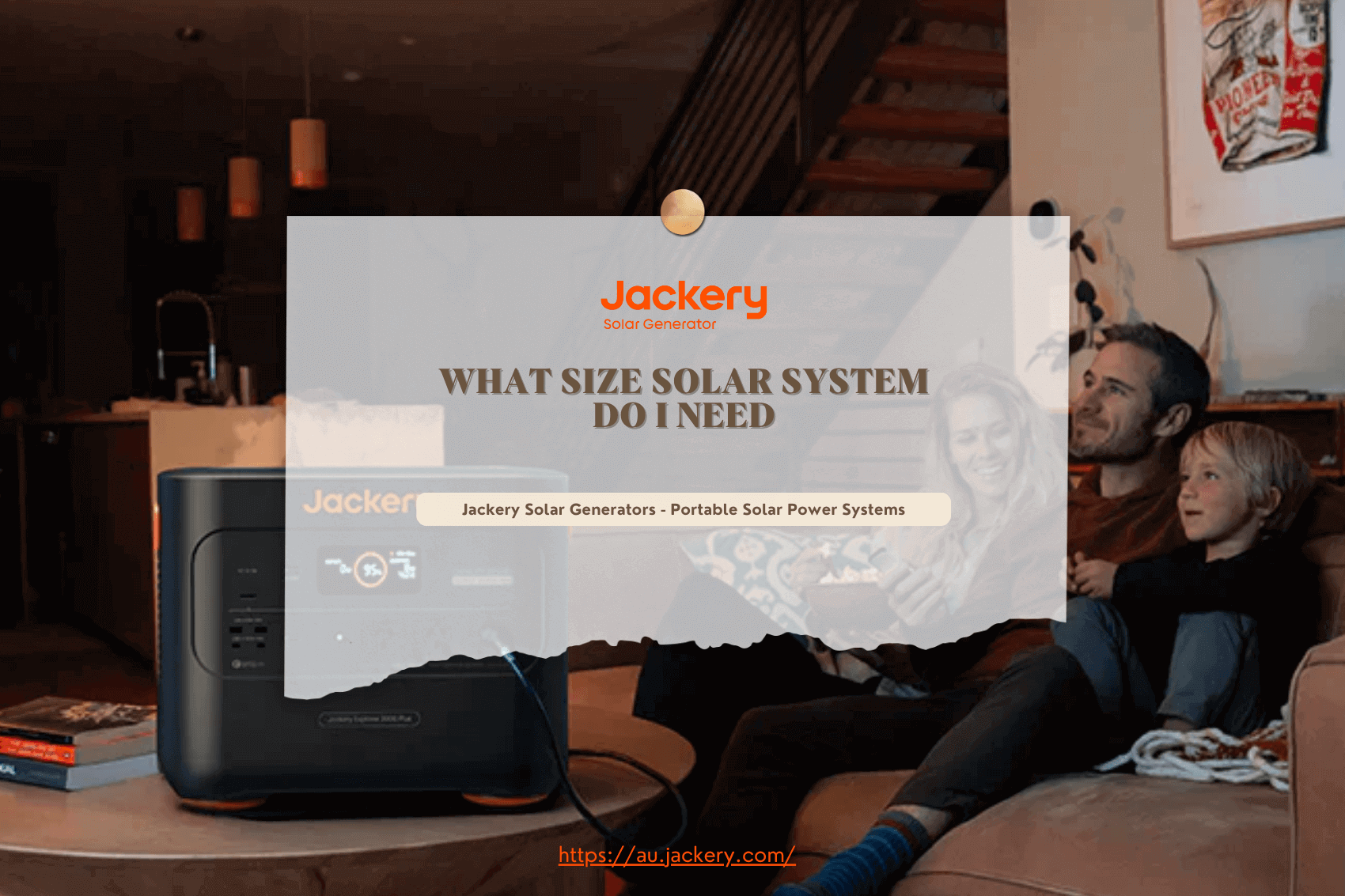|
Key Takeaways: |
|
• A solar battery storage system usually has batteries and a charging device that manages how the batteries are charged and drained. • In a solar battery storage system, the solar batteries store extra power made by solar panels, which will be used later. • There are many benefits to installing a solar battery storage system in your home, such as providing power all the time, lower electric bills, or power independence. • Most homes may benefit from a battery with at least 10kWh capacity, costing $9,000 to $13,000. • We highly recommend the Jackery Solar Generator 2000 Plus and 1000 Pro to experience solar energy but with a limited budget. |
What Is A Solar Battery Storage System?
A solar battery storage system stores extra energy from solar panels during the hottest parts of the day. This way, homes and companies can use solar power even when the sun isn't out. Solar batteries always ensure power, even when it's cloudy outside or at night when the solar panels aren't making electricity. To do this, they store the extra energy created during the day.
Another essential fact about a solar energy system is that the solar batteries can be charged repeatedly. These batteries keep electricity in the form of chemicals that can be changed back into electricity when needed.
Lithium-ion batteries are often used in solar systems because they have a high energy density, a long cycle life, and can be charged quickly. Lead-acid batteries are also used in some solar energy storage systems, which can be cheaper for some uses.
A solar battery storage system usually has batteries and a charging device that manages how the batteries are charged and drained. The charge sensor ensures that the batteries are charged correctly and safely by stopping deep discharge or overcharging, which can shorten the batteries' life. Users can use clean, green energy for many years because the charge controller optimises charging. This also helps the solar battery system work better and last longer.
How Does A Solar Battery Storage System Work?
In a solar battery storage system, the solar batteries store extra power made by solar panels, which will be used later. The solar panels turn the sun's energy into direct current (DC) electricity. You can use this electricity to power things at home or work. But solar panels give more power than is needed when the sun shines the brightest.

The extra electricity is sent to the solar battery storage device when this happens. This additional energy is stored chemically in batteries, which can be refillable lithium-ion batteries or lead-acid, nickel-cadmium, or flow batteries. The stored energy can then be used to power electricity loads when there isn't much sunlight, like at night or when it's cloudy.
A charge controller is often built into solar battery devices to manage charging and discharging. The charge sensor ensures that the batteries are charged correctly and safely by stopping deep discharge or overcharging, which can damage the batteries and shorten their life.
When electricity is needed, an inverter turns the energy stored in the batteries into power that can be used. The inverter changes the DC electricity stored in the batteries into alternating (AC). This electricity powers the home or company's lights, appliances, and other electrical items.
Solar batteries generally keep the extra electricity solar panels make when the sun shines brightest. This makes them a reliable and long-lasting energy source even when the sun isn't out.
Should I Get A Solar Battery Storage System?
Let's say you're at home watching TV while the washer runs on a rainy night. Suddenly, the power goes out. Now, picture the same thing happening, but this time, you have a solar energy system on your roof that stores energy in batteries. You'd need to know when the power goes out in your neighbourhood.
Someone often says you can only use solar power when the sun is out. With solar power, you need the sun to make electricity, but what about when the sun isn't? Most people use energy from the power grid and the power they get from the sun.
But solar battery storage systems for homes paired with battery storage - usually called solar-plus-storage systems - provide power all the time, no matter the weather or the time of day, without needing backup power from the grid. This is what a solar-plus-storage setup can do for you:
- Power all the time. Time-of-use billing means paying more for electricity in the evening because more people use it. If you don't have a solar energy system, this is likely why your electricity cost is higher. However, if you store energy in batteries, you can use the power you make during the day instead of depending on the power company. This is also helpful if you live where the power goes out.
- Lower your electric bill. You can escape paying more for electricity if your utility company raises rates. You can use cheap energy that has already been made and saved by storing it in batteries. This keeps your rates low and doesn't hurt your monthly budget. You can sell the energy you store back to the grid when prices increase and make money.
- More independence with energy. Most places require homes hooked to the power grid, even if the owners don't use their energy. A solar-plus-storage system brings you closer to being "off the grid."
You don't have to depend on your power company to bring energy to your home most of the year if you store it in batteries. Also, you can permanently save some battery power so your house will be the only one with lights on if the power goes out in your neighbourhood.
Suppose your budget is relatively lower for a stable home solar system. In that case, you can try a portable solar system, like Jackery Solar Generator, to use solar energy outdoors, off-grid, or in an emergency.

How Much Does A Solar Battery Storage System Cost?
The prices of solar batteries vary greatly, but the more significant the battery, the more you'll pay. Here are some average prices for batteries of some popular sizes, which include basic installation. Prices are based on what SolarQuotes says.
- 5-6 kWh: $10,000 to $6,500
- 10 kWh: $9000 to $13,000
- 13kWh: $11,000 to $16,000
Most homes may benefit from a battery with at least 10kWh capacity. But a smaller battery might be enough for tiny houses that don't use much power.
The Tesla Powerwall 2 with 13.5 kWh is one of the most famous batteries. At the moment, this costs around $12,100 without any discounts. When it's all set up, it will cost about $15,500 or more if the work is hard.
Prices at the lower end are usually just for a battery pack, which includes cells and a battery management device. When a battery system costs more, it likely has a battery charger and other parts built in. Be sure to ask about the cost of a new inverter and any extra electrical work when you get prices.
Buying a battery and a new solar panel system can be more cost-effective than adding it to an old system. This is especially true if the old system is over a few years old and may need a lot of work to make room for the battery. For example, older systems are usually small (3-5kW) and may need more panels to provide enough power to charge the battery and power the home.
Solar Rebates & Incentives
Thanks to government rebate programmes and energy trade systems, batteries can be a good investment for some families.
Remember that the "solar rebate" from the Small-scale Technology Certificate (STC) programme only pays for the solar panels in a system; it does not cover the battery. However, some states and territories have refund or special loan programmes for batteries.
Virtual Power Plants
A virtual power plant (VPP) is a group of solar and battery systems placed in homes and businesses. The VPP operator company runs a computer system that controls the whole network. When you sign up for a VPP programme, you agree to let the VPP provider use the energy stored in your home battery to help the grid when demand is high.
You get something in return: a subsidy. This could come in lower energy bills, a refund to help you buy the battery, or even free solar panels and battery installation. But remember that joining a VPP programme doesn't always mean your battery will pay for itself. You may find that your battery runs out of power at night when needed because the VPP uses some of the energy it has saved during the day.
Home Insurance
If you have solar panels, your home insurance will cover them. The panels, generator, and battery are all part of your home. However, it would help if you raised your house's insurance to cover replacing the solar panel system.
Fee-In Tariff
When doing the math, remember to think about the feed-in tariff (FiT) to see if a battery makes sense for your house. If your solar panels produce excess electricity, you can send it back to the power grid and receive compensation for the surplus quantity.
You will lose the feed-in tax for every kWh you use to charge your battery. Even though the FiT is low in most of Australia, you should still consider the chance cost. If you still have a good FiT (30c/kWh or more), it might be better not to put in a battery and take the FiT for the extra power you make.
However, any system still on those rates is likely an older one with a small capacity. It might be better in the long run to replace it with a new one with a bigger capacity.
Types of Solar Batteries
Figuring out the four main types of solar batteries opens up a lot of ways to use solar battery storage systems successfully.
Lead-acid batteries are a well-known technology that is easy to find and comes at a price that is good for off-grid uses. Even though they cost less initially, some people may not want to buy them because they must be maintained often and don't last as long.
Lithium-ion batteries are often used to store sun energy because they are light, have a high energy density, and last a long time. They are perfect for business and home use because they are small and work reliably.
However, the higher starting cost and worries about possible thermal runaway problems make it clear how carefully the system needs to be planned and managed. Suppose you want to try solar products but have a limited budget. In that case, try Jackery Solar Generators, which combine solar panels with solar power stations to use solar energy anywhere.
Nickel-cadmium batteries are also a good choice because they have a long cycle life, a wide working temperature range, and high discharge rates. Because of these qualities, they can be used in harsh conditions and in situations where quickly releasing energy is essential. However, cadmium is poisonous and needs to be thrown away correctly. It also has a lower energy density than lithium-ion batteries, which are both big problems.
Flow batteries are a hopeful new way to store solar energy with their ability to be scaled up, last a long time, and go deep into discharge. These batteries work great for large-scale tasks like storing energy at the grid level and setting up off-grid systems in rural areas. Even though flow batteries have some benefits, they are big, heavy, and not very efficient, so system design and operational factors need to be carefully thought out.
|
Type |
Pros |
Cons |
|
Lead Acid |
Affordable, widely available, suitable for off-grid applications |
Shorter lifespan, require regular maintenance, lower energy density |
|
Lithium Ion |
High energy density, long lifespan, lightweight and compact |
Higher initial cost, potential for thermal runaway |
|
Nickel Cadmium |
High discharge rate, wide operating temperature range, long cycle life |
Cadmium is toxic and requires proper disposal, lower energy density |
|
Flow |
Scalable, long lifespan, deep discharge capability |
Bulky and heavy, lower efficiency |
Jackery Solar Generators: Portable Solar Systems
Implementing a solar battery storage system in your residence provides numerous advantages. Jackery is a renowned manufacturer in the solar industry, focusing on producing top-notch solar equipment like solar generators, solar panels, and portable power stations. Jackery Solar Generators offer a reliable and uninterrupted power supply for your household appliances using lithium-ion batteries.

In conjunction with Jackery Solar Panels, a Portable Power Station facilitates the efficient conversion and storage of more sunlight for future use. By having numerous output ports, you can charge multiple appliances at the same time. Additionally, a Portable Power Station offers several options for recharging, such as Jackery Solar Panels, carports, wall outlets, or other electric generators.
Jackery Solar Generator 2000 Plus
Jackery has unveiled the Solar Generator 2000 Plus, a cutting-edge portable power solution with exceptional performance. Thanks to its substantial capacity and formidable power output, this device can sustain the operation of standard domestic appliances for several weeks and fulfil all the power needs associated with outdoor adventure or professional activity.
The Jackery Solar Generator 2000 Plus allows adding extra battery packs, which boosts the capacity from 2 kWh to a remarkable 12 kWh, thus enhancing the solar charging capabilities significantly. With the ability to be expanded to 3000W, this solar product offers a 30% higher rated power than other 2 kWh solar goods available in the market. Practically all essential household equipment is energised.
The Explorer 2000 Plus is an industry's pioneering add-on battery pack that can be recharged using solar panels. This feature enhances versatility, improves charging efficiency, and reduces charging time. The LiFePO4 battery, with its sophisticated technology, guarantees a lifespan of 10 years, even with daily usage limited to once per day. Jackery solar panels generate more energy over their lifespan due to their exceptional solar conversion efficiency, reaching up to 25%.

Jackery Solar Generator 1000 Pro
The Jackery Solar Generator 1000 Pro, which consists of the Explorer 1000 Pro portable power station and SolarSaga 80W solar panels, can power multiple devices simultaneously during a power outage or outdoor activity. You can charge your appliances using the Explorer 1000 Pro, which has a battery capacity 1002Wh. The BMS stands out as the industry leader due to its 94V-0 fire certification, foldable handle, and utilisation of pure sine wave technology.
The Explorer 1000 Pro portable power station includes three ports: one DC car port, two USB A connectors, and two 1000W AC outlets. It can supply electricity for more than 93% of the indoor and outdoor electrical needs, such as portable stoves, freezers, phones, and other devices. It can supply electricity to a 20W light for 40.1 hours, which is plenty of time to illuminate an area. It can supply electricity to a television with a power consumption of 100 watts for 8 hours.
The collapsible design of the handle allows for easy transportation and storage. This lightweight power source is perfect for camping trips and can be charged up to one thousand times. A pure sine wave inverter, which offers a clean and uninterrupted electrical signal, can reliably provide your gadgets with stable power without any variations in voltage. This product, regulated by a Battery Management System (BMS) and operates at an ultra-quiet noise level of 46 decibels, maintains a long-lasting battery life.

How to Select A Solar Battery Storage System?
To select the optimal solar battery storage system for your needs, you should think about the following essential things:
Capacity: Figure out how much storage space you need by looking at how much energy you use and how much extra power you need. Think about the size of your solar panel system, how much energy you use each day on average, and how long you want backup power to last during power blackouts.
Chemistry: Compare different types of batteries (like lithium-ion, lead-acid, nickel-cadmium, and flow batteries) based on their cost, energy density, lifespan, and effectiveness. Choosing the best combination that fits your performance and cost needs would be best.
Lifespan: Figure out how long the batteries should last by looking at how many charge-discharge cycles they can handle and how fast they lose power over time. Choose batteries that last longer to save money on replacement costs and get solid performance over time.
Performance: Think about how well the battery charges and discharges, handles different temperatures, and how deep it can empty. Choose batteries that work well and reliably in various situations, such as when the temperature is very high, or the battery needs to be cycled a lot.
Warranty: Look over the battery makers' warranty terms. These should include coverage for defects, performance promises, and how the battery loses power over time. Choose batteries with full guarantees to protect your investment and give you peace of mind.
Make sure the solar batteries will work with the solar panels, generator, and charge controller that you already have. Choose batteries that work well with the rest of your system to get the most out of its speed and efficiency.
Safety: Safety features like built-in security against overcharging, overheating, short circuits, and other possible dangers should be given the most attention. To lower the chance of accidents or damage, choose batteries that meet safety standards and rules set by the industry.
Cost: Look at how much each battery costs upfront, how much it costs to install, and how much it costs to own over time. Think about things like the cost of buying the batteries, how often they need to be maintained, and how much you could save on your energy bills or grid connection fees over the life of the batteries.
Solar Battery Storage System FAQs
The following are the frequently asked questions about the solar battery storage system.
- Is a solar battery storage system worth it?
What are the benefits of battery storage? The benefits may depend on your energy needs and goals. It lets you save the extra energy that your solar panels make so that you can use it when there isn't much sunlight or when there is a lot of energy demand. This could help you depend less on the power grid and save you money in the long run.
- How much does a 10kw solar battery cost?
The price of a 10kW solar battery may change depending on its type (lead-acid or lithium-ion), brand, and strength. It usually costs between $10,000 and $20,000 to build a 10kW battery system.
- How many solar batteries are needed to power a house?
The number of solar batteries a house needs depends on how big the house is, how much energy it uses, and how much power the batteries can hold. A single battery may be enough for smaller homes that use less energy. On the other hand, bigger homes or homes that use a lot of energy may need more than one battery.
- How much does adding battery storage to a solar system cost?
The price of adding a battery to a solar system can change based on the type and size of the battery, the installation cost, and any extra tools needed. For most people, adding battery backup to an existing solar system costs $5,000 to $15,000 or more.
Final Thoughts
A solar battery storage system is an intelligent purchase for households who want to lower their energy costs, become more energy-independent, and lessen their carbon footprint. In the long run, solar batteries can help you save money on electric bills and protect the environment. Remember that installing, maintaining, and using solar batteries correctly are all important for getting the most out of them. If installing a solar system costs too much, consider investing in a Jackery Solar Generator.

